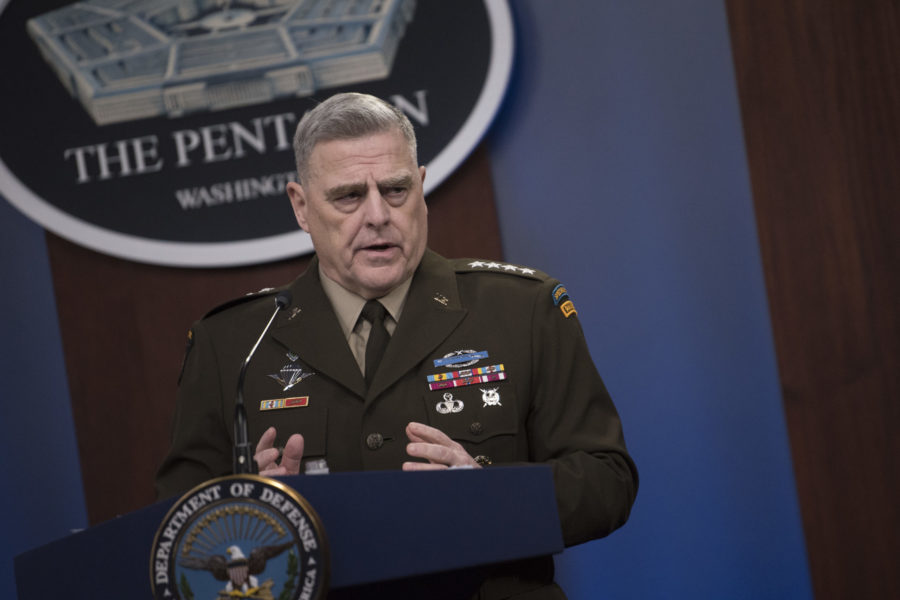Chairman of the Joint Chiefs of Staff Army Gen. Mark A. Milley spoke with his Russian counterpart Dec. 22 amid border tensions with Ukraine and mounting concerns of a Russian invasion in January. The call followed comments by Secretary of State Antony Blinken that high-level dialogue with Russia is sought “relatively early in the new year.”
“We’re engaged in diplomacy and deterrence at the same time,” Blinken said in a Dec. 21 press briefing in which the top diplomat repeated a threat of “massive consequences” if Russia further invades Ukraine.
Nations on NATO’s eastern flank, from the Baltics to the Black Sea, have called for additional troop rotations and capabilities to deter a Russian invasion, while Ukraine has specifically called for new air defense systems. Pentagon Press Secretary John F. Kirby said Dec. 20 that an American air defense team recently returned from Ukraine but that the Biden administration has made no decision to grant new defense assistance to Ukraine.
Blinken said he’s pursuing avenues for a potential dialogue with Russia in January, including the via the existing Strategic Stability Dialogue; the now defunct NATO-Russia Council, which Russia backed out of in October; and the Organization for Security and Cooperation in Europe, which monitors compliance of the Minsk agreement in the disputed Donbas region of southeastern Ukraine.
The Secretary of State redoubled a promise made by President Joe Biden and National Security Advisor Jake Sullivan of “very meaningful and massive response” by the United States and its allies “if Russia commits renewed acts of aggressions” but promised no further deterrence measures, such as military movements along the eastern flank of NATO.
Notwithstanding, Blinken admitted that intelligence suggests Russia is poised for an invasion.
“We’ve seen plans that Russia has to commit renewed acts of aggression against Ukraine that it could implement on very short order,” Blinken said.
A Ukrainian defense official declined to comment on Blinken’s remarks but told Air Force Magazine Dec. 22: “Having Russia as [a] neighbor, we are always concerned.”
A readout of the call between Milley and Chief of Russian General Staff Gen. Valery Gerasimov said the two leaders discussed “regional security-related issues of concern … to ensure risk reduction and operational de-confliction.” The statement from Joint Staff Spokesperson Col. Dave Butler said that, consistent with their past phone calls, the two leaders agreed to keep the specific details of their conversation private.
Kirby said in a press gaggle Dec. 21 that Russian de-escalation was a matter for the State Department to address but that the presence of 100,000 Russian troops on Ukraine’s borders is still a source of regional instability.
“We still believe that there’s time and space for diplomacy and discussion to achieve a result that does not increase the instability or [violate] the territorial integrity of Ukraine,” Kirby said in the official transcript.
Defense Secretary Lloyd J. Austin III planned, as part of his holiday phone calls Dec. 22, to speak with members of the Florida Army National Guard’s 53rd Infantry Brigade Combat Team now conducting joint training in western Ukraine.
Ukraine has called for a pathway to NATO entry, something Russian President Vladimir Putin has declared is a red line for Russia. Putin has also worked to discourage military assistance to Ukraine and warned against a buildup on NATO’s eastern flank.
“We continue to see a significant force presence near and around the Ukraine border. It continues to be concerning,” Kirby added. “We still don’t know the full intent here. And there’s no indication that President Putin has made a decision one way or another.”
